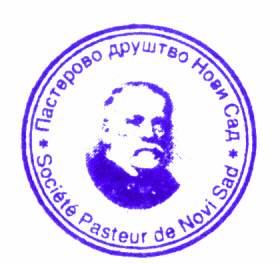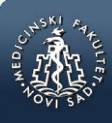md-medicaldata
Main menu:
- Naslovna/Home
- Arhiva/Archive
- Godina 2024, Broj 1
- Godina 2023, Broj 3
- Godina 2023, Broj 1-2
- Godina 2022, Broj 3
- Godina 2022, Broj 1-2
- Godina 2021, Broj 3-4
- Godina 2021, Broj 2
- Godina 2021, Broj 1
- Godina 2020, Broj 4
- Godina 2020, Broj 3
- Godina 2020, Broj 2
- Godina 2020, Broj 1
- Godina 2019, Broj 3
- Godina 2019, Broj 2
- Godina 2019, Broj 1
- Godina 2018, Broj 4
- Godina 2018, Broj 3
- Godina 2018, Broj 2
- Godina 2018, Broj 1
- Godina 2017, Broj 4
- Godina 2017, Broj 3
- Godina 2017, Broj 2
- Godina 2017, Broj 1
- Godina 2016, Broj 4
- Godina 2016, Broj 3
- Godina 2016, Broj 2
- Godina 2016, Broj 1
- Godina 2015, Broj 4
- Godina 2015, Broj 3
- Godina 2015, Broj 2
- Godina 2015, Broj 1
- Godina 2014, Broj 4
- Godina 2014, Broj 3
- Godina 2014, Broj 2
- Godina 2014, Broj 1
- Godina 2013, Broj 4
- Godina 2013, Broj 3
- Godina 2013, Broj 2
- Godina 2013, Broj 1
- Godina 2012, Broj 4
- Godina 2012, Broj 3
- Godina 2012, Broj 2
- Godina 2012, Broj 1
- Godina 2011, Broj 4
- Godina 2011, Broj 3
- Godina 2011, Broj 2
- Godina 2011, Broj 1
- Godina 2010, Broj 4
- Godina 2010, Broj 3
- Godina 2010, Broj 2
- Godina 2010, Broj 1
- Godina 2009, Broj 4
- Godina 2009, Broj 3
- Godina 2009, Broj 2
- Godina 2009, Broj 1
- Supplement
- Galerija/Gallery
- Dešavanja/Events
- Uputstva/Instructions
- Redakcija/Redaction
- Izdavač/Publisher
- Pretplata /Subscriptions
- Saradnja/Cooperation
- Vesti/News
- Kontakt/Contact
 Pasterovo društvo
Pasterovo društvo
- Disclosure of Potential Conflicts of Interest
- WorldMedical Association Declaration of Helsinki Ethical Principles for Medical Research Involving Human Subjects
- Committee on publication Ethics
CIP - Каталогизација у публикацији
Народна библиотека Србије, Београд
61
MD : Medical Data : medicinska revija = medical review / glavni i odgovorni urednik Dušan Lalošević. - Vol. 1, no. 1 (2009)- . - Zemun : Udruženje za kulturu povezivanja Most Art Jugoslavija ; Novi Sad : Pasterovo društvo, 2009- (Beograd : Scripta Internacional). - 30 cm
Dostupno i na: http://www.md-medicaldata.com. - Tri puta godišnje.
ISSN 1821-1585 = MD. Medical Data
COBISS.SR-ID 158558988
OBRAZOVANJE KAO FAKTOR OD ZNAČAJA ZA PREVAZILAŽENJE STRESA KOD MLADIH ZAPOSLENIH U INDUSTRIJI IGARA NA SREĆU
/
THE IMPACT OF EDUCATION IN OVERCOMING STRESS IN YOUNG EMPLOYEES IN THE GAMBLING INDUSTRY
Authors
Jelena D. Marković1, Jelena Jović2, Mirjana Ž. Aranđelović3
1Fakultet bezbednosti Univerziteta u Beogradu
2Medicinski fakultet Univerziteta u Kosovskoj Mitrovici
3Medicinski fakultet Univerziteta u Nišu
UDK: 159.944.4.072-057.16
613.86-057.16
The paper was received / Rad primljen: 30.09.2019. /
Accepted / Rad prihvaćen: 01.11.2019.
Correspondence to:
dr Jelena D. Marković
e-mail: jjelena.markovic@gmail.com
Sažetak
Uvod/Cilj. Brojna istraživanja potvrdila su da stres na radnom mestu može imati negativne posledice po zdravlje zaposlenih. Postoji više faktora koji utiču na intenzitet reagovanja na stres i izbor mehanizama za njegovo prevladavanje. Metode. Sprovedena je studija preseka. Upotrebljen je upitnik SSM-30, koji je predstavlja kombinaciju skale životnih događaja (Holmes Rashe Life Events Scale) i skale stresa kod mladih. Ciljnu grupu činili su mladi zaposleni u industriji igara na sreću, koji svoj posao obavljaju u poslovnicama gde su izloženi radu sa ljudima i novcem. Upitnik je omogućio prikupljanje podataka o demografskim karaktetirstikama ispitanika, uključujući i nivo obrazovanja kao karakteristiku. Rezultati. Rezultati našeg istraživanja pokazali su da je obrazovanje ispitanika i njihovih roditelja faktor koji može modifikovati reagovanje na stres u određenoj meri, a značajno utiče na izbor mehanizama za prevladavanje stresa. Zaključak. Različit nivo obrazovanja ispitanika dovodi do različitih opredeljenja kada su mehanizmi odbrane od stresa u pitanju. Nije potvrđena linearna disperzija korišćenja mehanizama odbrane od stresa u odnosu na nivo obrazovanja.
Ključne reči:
obrazovanje, stres, radno mesto, mehanizmi prevazilaženja stresa
Abstract
Background / Aim. Numerous studies have confirmed that workplace stress can have negative effects on employee health. There are several factors that influence the intensity of response to stress and the choice of mechanisms to overcome it. Methods.We performed a cross-sectional study. Used a questionnaire SSM-30, which is a combination of the scale of life events (rash Holmes Life Events Scale) and scale of stress for young people. The research population consisted of young people employed in the gaming industry, who do their job in the offices where they are exposed to work with people and money. The questionnaire has enabled the collection of data on the demographic characteristics of the respondents, including the level of education as a feature. The results. The results of our study showed that the education of the respondents and their parents is a factor that can modify the response to stress to some extent, and significantly influence the choice of mechanisms to overcome stress. Conclusion. Different levels of respondents' education lead to different choices when it comes to stress defense mechanisms. The linear dispersion of the use of stress defense mechanisms in relation to educational level has not been confirmed.
Key words:
education, stress, workplace, coping stress mechanisms
References:
- Pastuović N. Obrazovanje i razvoj. Zagreb, Institut za društvena istraživanja u Zagrebu i Učiteljski fakultet u Zagrebu. 2012.
- Jović S, Simonović Lj, Aranđelović M, Milošević Z, Nikolić M, Petrović B, et al. Izvori stresa kod studenata medicine i rodno uslovljene razlike u percepciji stresa. Medical data. 2011;3 (1): 37-42
- Aranđelović M, Ilić I, Jović S. Burnout and the quality of life of workers in food industry: A pilot study in Serbia. Vojnosanitetski pregled. 2010;67(9):705-11
- Jovic SJ, Ristic SS, Bogdanovic DC, Radulovic O, Visnjic AM, Sagric CR. Sources of stress among future helper professionals in human services. HealthMed. 2012 Jan 1;6(8):2886-92.
- Juras K, Knežević B, Golubić R, Milošević M, Mustajbegović J. Stres na radu: mjere prepoznavanja, rješenja i prevencija. Sigurnost: časopis za sigurnost u radnoj i životnoj okolini. 2009 Jul 1;51(2):121-6.
- Lukić, R. D., & Pečujlić, M. ur. Sociološki leksikon. Beograd: Savremena administracija. (1982)
- Gvozdenović S. Obrazovanje i drugi srodni pojmovi. Sociološka Luča. 2011 Sep 1;5(2).
- Flere S. Obrazovanje u društvu: uvod u sociologiju vaspitanja i obrazovanja. Gradina; 1976.
- Dedić G. Professional burnout. Vojnosanitetski pregled. 2005;62(11):851-5.
- Beckovic D, Milovanovic S, Maksimovic M, Latas M. Stres i mentalni zamor u radnom procesu kao problem industrijski razvijenih zemalja Schuler RS. Definition and conceptualization of stress in organizations. Organizational behavior and human performance. 1980 Apr 1;25(2):184-215.
- UNDP Human Development Report 1994, preuzeto sa http://hdr.undp.org/sites/default/files/reports/255/hdr_1994_en_complete_nostats.pdf , un 2019. pristupljeno 17.08.2019
- Aranđelović M, Ilić I. Stress in workplace-possible prevention. Facta Universitatis. 2006;13(3):139-44.
- Krohne HW. Stress and coping theories. International Encyclopedia of the Social Behavioral Sceinces. 2002;22:15163-70.
- Ursin H, Eriksen HR. The cognitive activation theory of stress. Psychoneuroendocrinology. 2004 Jun 1;29(5):567-92.
- Rice VH. Theories of stress and its relationship to health. Handbook of Stress, Coping, and Health: Implications for Nursing Research, Theory, and Practice. Second Edition. Los Angeles: Sage Publications. 2012:22-42.
- Martin MA. Family structure and the intergenerational transmission of educational advantage. Social science research. 2012 Jan 1;41(1):33-47.
- Fairbrother K, Warn J. Workplace dimensions, stress and job satisfaction. Journal of managerial psychology. 2003 Feb 1;18(1):8-21.
- Deasy C, Coughlan B, Pironom J, Jourdan D, Mannix-McNamara P. Psychological distress and coping amongst higher education students: A mixed method enquiry. Plos one. 2014 Dec 15;9(12):e115193.
- Tomanović S, Stanojević D, Jarić I, Mojić D, Labaš SD, Ljubičić M, Živadinović I. Mladi-naša sadašnjost: istraživanje socijalnih biografija mladih u Srbiji. Čigoja štampa; 2012.
- Hujdurović E. Stres menadžment, tipovi i načini primjene odbrambenih sistema u otklanjanju stresa na radnom mjestu, Primus Global. 2015 Dec 1;2(1).
- Ongori H, Agolla JE. Occupational stress in organizations and its effects on organizational performance. Journal of management research. 2008;8(3):123-35.
- Erkutlu HV, Chafra J. Relationship between leadership power bases and job stress of subordinates: example from boutique hotels. Management Research News. 2006 May 1;29(5):285-97.
- Petrović NM. Ethical implications of culturally (in) sensitive practice in psychotherapy. Psihološka istraživanja. 2016;19(1):107-17.
- Popadić D. O mentalnom zdravlju naroda. Republika. 2000;223. Preuzeto 5. 1. 2016 sa: http://www.yurope.com/zines/republika/arhiva/2000/233/233_26.html.
PDF Marković D. J. et al • MD-Medical Data 2019;11(3-4): 123-130
 Medicinski fakultet
Medicinski fakultet